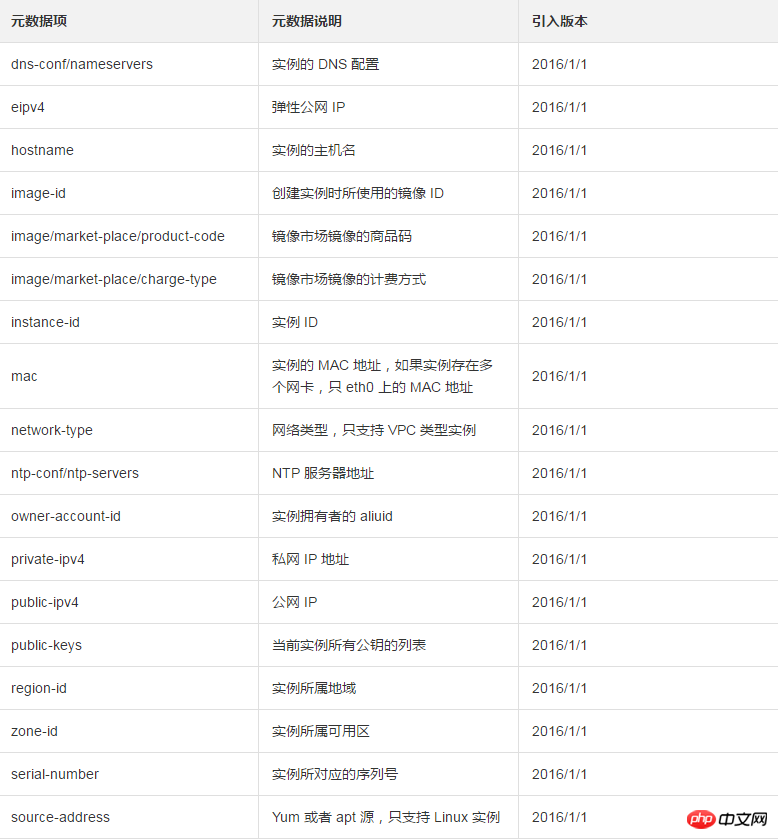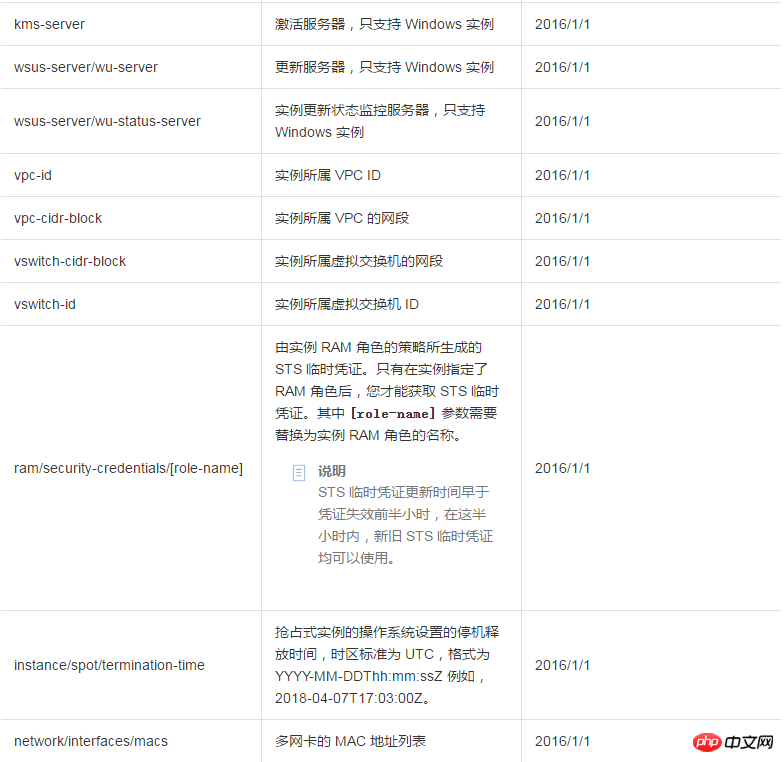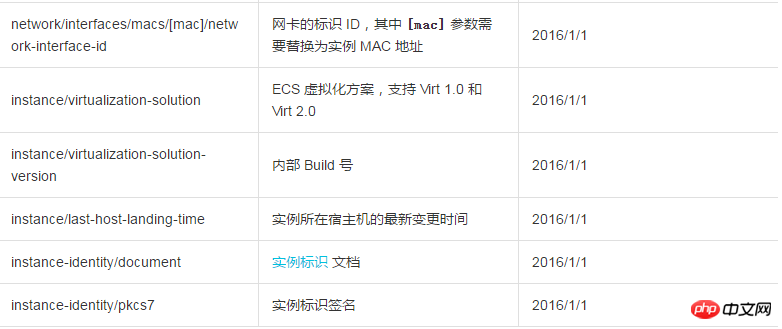Home >Operation and Maintenance >Windows Operation and Maintenance >How to get metadata of VPC type instances in Linux and Windows
The content of this article is about how to obtain the metadata of private network VPC type instances in Linux and Windows. It has certain reference value. Friends in need can refer to it. I hope it will be helpful to you. help.
Instance metadata
Instance metadata refers to some basic information about your ECS instance in the Alibaba Cloud system, including instance ID, IP address, operating system, etc. You can use these metadata to manage or configure ECS instances.
Note
If you manually change some instance information, this change will not be reflected in the instance metadata.
Usage restrictions
Only supports obtaining metadata of VPC type instances.
Getting method
Linux instance
Use username and password authentication to connect to the Linux instance.
Execute the command
curl http://100.100.100.200/latest/meta-data/
to access the root directory of metadata.
Add the specific metadata name in the URL to obtain the specific metadata. For example:
Execute the command
curl http://100.100.100.200/latest/meta-data/instance-id
to obtain the instance ID.
Execute the command
curl http://100.100.100.200/latest/meta-data/image-id
to obtain the image ID used when creating the instance.
Windows instance
Use software to connect to Windows instance.
Use PowerShell to execute the command
Invoke-RestMethod http://100.100.100.200/latest/meta-data/
to obtain metadata information.
Add the specific metadata name in the URL to obtain the specific metadata, for example:
Execute the command
Invoke-RestMethod http://100.100.100.200/latest/meta-data/instance-id
to obtain the instance ID.
Execute the command
Invoke-RestMethod http://100.100.100.200/latest/meta-data/image-id
to obtain the image ID used when creating the instance.
Instance metadata list


 ##
##
The above is the detailed content of How to get metadata of VPC type instances in Linux and Windows. For more information, please follow other related articles on the PHP Chinese website!